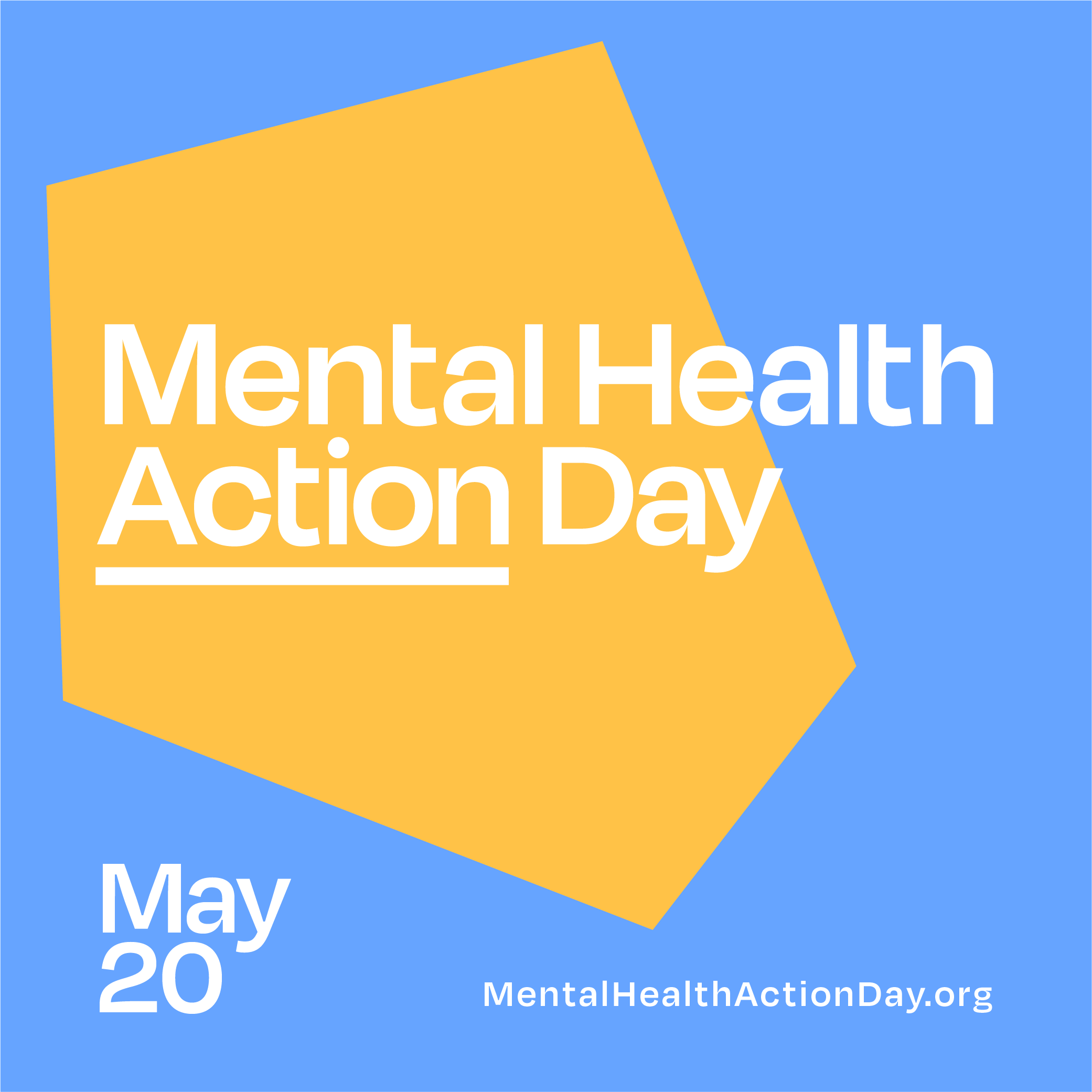
A version of this article also appeared in theIt’s Not Just You newsletter. Sign up here to receive a new edition every Sunday. This week, we have a special Mental Health Awareness Month edition of It’s Not Just You. In addition to the piece below, you can read a guest essay from Ciara Alyse Harris, one of the stars of the hit musical, Dear Evan Hansen here.
My dad, who was always intuitive, told us he saw that my little sister’s depression had returned when he printed photographs he’d taken of her. “I could see it in her eyes, like a ghost,” he said. It was an observation born of love and experience, not science, but not wrong.
Until recently, major depression has felt like a ghost disease–invisible but devastating. It’s a disorder that still affects millions every year–one in four of us will suffer a depressive episode in our lifetime. Despite those numbers and the fact that humans have been documenting and speculating about it for millennia, we’re only beginning to understand its biology.
How differently would we think about depression if we could visualize it, track it and fight it the way we do cancer or the novel coronavirus?
Thanks to some astounding new research, we’re getting closer to finding out.
In April, a team at the Indiana University School of Medicine published news about a promising new blood test that can reveal how severe a patient’s depression may be, the risk of developing severe depression, and even the risk of future bipolar disorder. This breakthrough using RNA biomarkers will get us closer to more precise and effective treatments and is just one example of a whole slew of biomarkers for depression that researchers have been uncovering.
Sign up for It’s Not Just You here to get an essay every Sunday.
Other findings that further establish the link between the biology of the brain and mood disorders may lead to new drug therapies. Earlier this year, researchers in the Department of Psychiatry at McGill University, Montreal, produced evidence that a reduced density of star-shaped brain cells called astrocytes is linked to major depression.
These wondrous star cells support neurons, and a single astrocyte cell can interact with up to 2 million synapses at a time. A reduction in astrocytes in the brain regions studied may have adverse effects because those areas are thought to be important for decision-making and emotional regulation, conditions common in major depression. So there may be an opportunity to alleviate depression by developing drugs that boost the astrocytes or their functions. (And there’s optimistic related research on psychedelics like ketamine which may affect astrocyte function.)
Surely it’s possible to define the contours and mechanisms of depression in ways that allow us to see what we’re fighting clearly, and to shed the old stigmas, myths, and self-blame that have clung to this disease for too long. After all, in just a year, we had a picture of the coronavirus in our heads with its red spikes; we could get a test for it, and in record time, we had a vaccine.
Imagine if we thought of depression, anxiety, and other mood disorders as a pandemic-level crisis and launched a response proportional to the toll these illnesses take, especially in the wake of the pandemic. And, crisis is not too strong a word: the CDC reported the percentage of U.S. adults with recent symptoms of anxiety or a depressive disorder rose to 41.5% in February. The toll in lost productivity, related increases in substance abuse, and heartbreak is immeasurable. The World Health Organization reports that depression is the leading contributor to long-term disability globally. The lack of access throws families into an agonizing matrix of prohibitively expensive, hard-to-coordinate treatments if they are able to access care at all.
This effort could include an ‘operation warp speed‘ type-accelerator for all this promising biomarker research, plus an infusion of resources to provide universal access to therapists and existing treatments right now. Given that all of us know someone or are someone who’s battled this disease, it’s everyone’s issue.
The mental health moonshot we need would provide hope and that in and of itself might save lives. The process of finding effective remedies for depression can be so debilitating that just the thought of going through that cycle of trial and error again is unbearable for some patients, like my sister. (Only about a third of those diagnosed with depression get treatment at all. And a third of those who do get help find their depression doesn’t respond to treatment.)
William Styron, whose searing descriptions of depression defined it for generations, wrote about how believing there’s no remedy is what makes the disease intolerable: “It is hopelessness even more than pain that crushes the soul.”
I hang on to hope by thinking about the researchers who may someday be able to illuminate the darkest places of the mind by replenishing lost star cells. There’s a universe within us, one we need to explore. And research like the discovery of the link between astrocytes and depression is both a wonder of science and a demonstration of a kind of human magic — faith in the power of knowledge to heal.

Sign up for It’s Not Just You here to get an essay every Sunday.

RESOURCES AND INITIATIVES
For Mental Health Awareness Month, the Child Mind Institute launched Getting Better Together – a campaign featuring inspiring, homemade videos from celebrities including Zoe Saldana, sharing their personal stories to support kids who are especially struggling during the pandemic and lend a powerful voice to help eliminate stigma, inspire hope, and encourage kids to ask for help. View the videos on their social channels: Twitter: @ChildMindInst; Instagram: @childmindinstitute; Facebook: facebook.com/ChildMindInstitute

In the wake of COVID-19, millions of people have uncovered new mental health conditions and millions more have had their existing challenges exacerbated. In response to this crisis, more than 500 organizations are teaming up to launch the inaugural ‘Mental Health Action Day’ on May 20. Learn about resources are available to individuals and what you can do to make mental health care a national priority at: www.MentalHealthActionDay.org
COPING KIT
National Alliance on Mental Illness (NAMI)
NAMI Connection is a support group for people with mental health conditions. Groups meet weekly, every other week or monthly, depending on location. This program is also available in Spanish, NAMI Conexión.
Find the NAMI Connection support group nearest you
NAMI Family Support Group is a support group for family members, significant others and friends of people with mental health conditions. Groups meet weekly, every other week or monthly, depending on location.
Find the NAMI Family Support Group nearest you
The NAMI HelpLine can be reached Monday through Friday, 10 a.m.–8 p.m., ET.
1-800-950-NAMI (6264) or info@nami.org
Text HOME to 741741 to connect with a Crisis Counselor
Free 24/7 support at your fingertips
US and Canada: text 741741
UK: text 85258 | Ireland: text 50808
Talk to someone now: National Suicide Prevention Lifeline
1-800-273-8255 CHAT WITH LIFELINE
Options For Deaf + Hard of Hearing
For TTY Users: Use your preferred relay service or dial 711 then 1-800-273-8255.
Did someone forward you this newsletter? SUBSCRIBE to It’s Not Just You here.
More Must-Reads From TIME
- The 100 Most Influential People of 2024
- The Revolution of Yulia Navalnaya
- 6 Compliments That Land Every Time
- What's the Deal With the Bitcoin Halving?
- If You're Dating Right Now , You're Brave: Column
- The AI That Could Heal a Divided Internet
- Fallout Is a Brilliant Model for the Future of Video Game Adaptations
- Want Weekly Recs on What to Watch, Read, and More? Sign Up for Worth Your Time
Contact us at letters@time.com